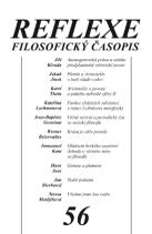The Concept of Sovereignty according to Thomas Hobbes, Compared to the Concepts of Person and Representation
By outlining a division of reality into an empirical and an imaginative sphere, the paper analyzes the relationship between the notions of person, state, and sovereignty in Hobbes’ Leviathan. The state is conceived as a special type of fictitious person which completely lacks material substance. The sovereign is understood as a representative person who represents the fictitious state as well as natural individuals. Any limitation of power applies only to empirical reality, which also includes natural liberty. Though the system of positive law leaves no space for any limitation of sovereignty which would be immanent to this system, there always remains the possibility for the individual to completely reject the imaginative sphere of sovereignty. Consequently, the (supposed) absolutism of Hobbes bears a strong liberal element.
Backlinks: Reflexe 47
